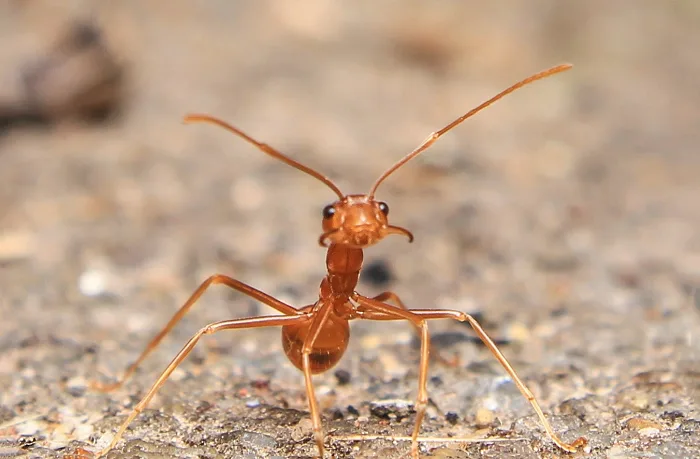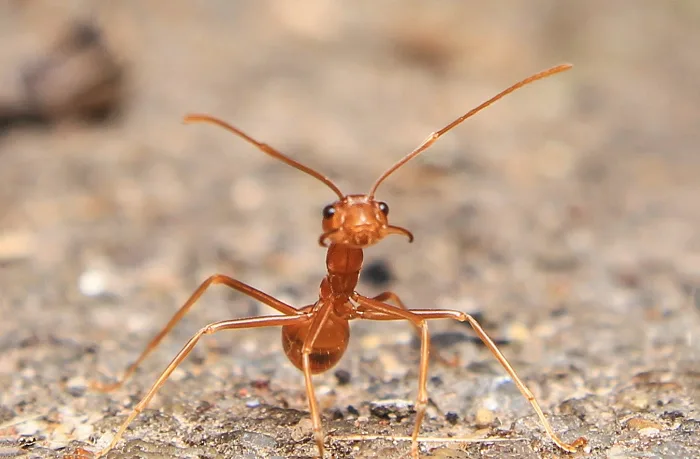
A TikTok discussion has some people asking: Can you SMELL ants?
Take a look at the grass: There's a tiny world that's thriving at ground level.
A viral discussion popped up on the social media platform TikTok earlier this month, with some people claiming they can SMELL dead ants.
The discussion took off after a user posted a question asking if others could smell the scent of dead ants. Some agreed while others had no idea this was possible.
"I'm sure I can smell some dead ants," says Dr. Gary Umphrey, an Associate Professor of Statistics at the University of Guelph.
Dr. Umphrey has a Ph.D. in biology and is a bonafide ant expert.
"We do have some ants that have very strong odours," he explains, "and that smell gets held onto for quite a long time after they're dead."
One of those ants would be 'citronella' ants, yellow ants that are found in soil in North America. They smell a bit like lemon pledge.
"If you had a lot of them that were decaying, I am almost certain you would be able to smell it," Dr. Umphrey says, but you likely wouldn't be able to pick up the scent of a small group of dead ants.
Some insects have a strong smell when they band together and die. One example of that would be mayflies, aquatic insects that live together in enormous swarms, which can number in the millions.
When large groups of them die, it can give off the smell of rotting fish -- but that's more likely due to decaying biological material. When you can pick up the scent of an ant, it's probably due to the chemicals they are releasing.

Ants DO release scents, but you'll only smell them when they're in large groups. File photo: prasanthdas/Pexels.
WHY DO ANTS RELEASE CHEMICALS?
In most cases, ants release smells to ward off predators.
Formica ants, for example, are commonly found in forested areas in North America and can spray formic acid, which smells like vinegar.
"If you get a bunch of them, the smell is so strong it can almost knock you off your feet," Dr. Umphrey says. Too much exposure to the acid can irritate the skin and likely wouldn't feel good to a bear that wanders upon one of their nests and tries to grab a snack.
ANY OTHER SCENTS?
The odorous house ant, found throughout Canada, smells like blue cheese when it's squished, courtesy of a group of chemical compounds called methyl ketones.
Trap-jaw ants can smell a bit like chocolate, and when ants die of natural causes they release oleic acid, which acts as a 'death cue' to nearby insects and smells a bit like olive oil.
WHAT ELSE?
We wouldn't be The Weather Network if we didn't tell you how all of this relates to the forecast.
So here's the scoop: according to Dr. Umphrey, some ants have mating flight patterns that are associated with the weather.
When he was researching Acanthomyops ants in London, Ontario, the weather report was an important tool.
"Ideally, you were looking for a day or so after a good rainstorm and certain temperatures, depending on the species, and a time when the wind stopped," he says.
That's when you're more likely to find "big explosions" of ant mating flights.
The next time you're walking around outside, stop and take around. The scents you detect and the weather above may provide clues as to what is happening at ground level -- and give you a glimpse into a tiny, thriving world that's happening just beneath our feet.
It's there for us to understand and enjoy -- if we're willing to look closely enough.











